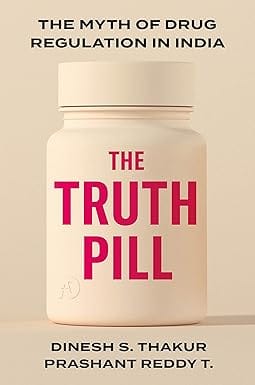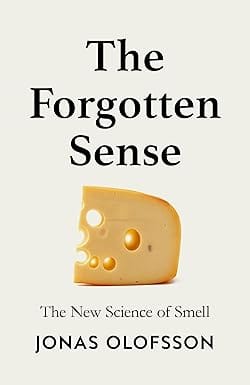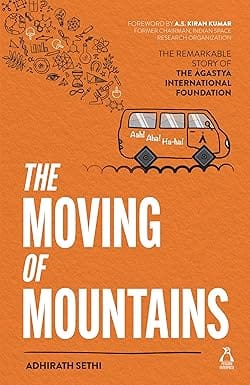- Contemporary Fiction
- Contemporary Fiction
- Children
- Children
- Comics & Graphic Novels
- Comics & Graphic Novels
- Non-Fiction
- Non-Fiction
- Fiction
- Fiction
Since 2004, when the fraud at Ranbaxy, the largest Indian pharmaceutical company at the time first came to light, the Indian pharmaceutical industry and clinical research organizations have been rocked by a series of scandals after investigations by American and European drug regulators. While the West has responded to concerns about quality of “Made in India” medicine by blocking exports from many Indian pharmaceutical companies, the Indian government responded not with regulatory reform but conspiracy theories about “vested interests” working against India.
More worryingly, the Indian state has also turned a blind eye to a far more serious quality crisis in its domestic pharmaceutical market. At times, these quality issues manifest themselves in deaths of Indian citizens as happened in early 2020 when 11 children died in Jammu because of adulterated cough syrup. On other occasions, a dodgy drug approval process has led to the Indian regulator approving sales of drugs that have never been approved by regulators in the developed markets. The result is not just poor health outcomes but outsize profits for pharmaceutical companies manufacturing medicines that have never been validated through scientifically rigorous clinical trials for therapeutic evidence.
These twin crises, in both the domestic and export markets is because India has either outdated regulations or no regulations in some areas. Even the outdated regulations are enforced with gloves by drug inspectors and judicial magistrates who are ready to forgive even those whose drugs are found to contain barely any active ingredient or dangerously high levels of bacterial endotoxins. In a race for growth of the pharmaceutical industry, the Indian state has sacrificed scientific rigour and ignored the basic principles of public health. Given India’s position as the pharmacy of the developing world, the failure of the Indian state is a problem for not just India but most of the developing world.
- Home
- Science Technology And Medicine
- The Truth Pill
The Truth Pill
SIZE GUIDE
- ISBN: 9788197949265
- Author: Dinesh S Thakur Prashant Reddy
- Publisher: Simon And Schuster
- Pages: 512
- Format: Paperback
Book Description
Since 2004, when the fraud at Ranbaxy, the largest Indian pharmaceutical company at the time first came to light, the Indian pharmaceutical industry and clinical research organizations have been rocked by a series of scandals after investigations by American and European drug regulators. While the West has responded to concerns about quality of “Made in India” medicine by blocking exports from many Indian pharmaceutical companies, the Indian government responded not with regulatory reform but conspiracy theories about “vested interests” working against India.
More worryingly, the Indian state has also turned a blind eye to a far more serious quality crisis in its domestic pharmaceutical market. At times, these quality issues manifest themselves in deaths of Indian citizens as happened in early 2020 when 11 children died in Jammu because of adulterated cough syrup. On other occasions, a dodgy drug approval process has led to the Indian regulator approving sales of drugs that have never been approved by regulators in the developed markets. The result is not just poor health outcomes but outsize profits for pharmaceutical companies manufacturing medicines that have never been validated through scientifically rigorous clinical trials for therapeutic evidence.
These twin crises, in both the domestic and export markets is because India has either outdated regulations or no regulations in some areas. Even the outdated regulations are enforced with gloves by drug inspectors and judicial magistrates who are ready to forgive even those whose drugs are found to contain barely any active ingredient or dangerously high levels of bacterial endotoxins. In a race for growth of the pharmaceutical industry, the Indian state has sacrificed scientific rigour and ignored the basic principles of public health. Given India’s position as the pharmacy of the developing world, the failure of the Indian state is a problem for not just India but most of the developing world.
User reviews
NEWSLETTER
Subscribe to get Email Updates!
Thanks for subscribing.
Your response has been recorded.

India's Iconic & Independent Book Store offering a vast selection of books across a variety of genres Since 1978.
"We Believe In The Power of Books" Our mission is to make books accessible to everyone, and to cultivate a culture of reading and learning. We strive to provide a wide range of books, from classic literature, sci-fi and fantasy, to graphic novels, biographies and self-help books, so that everyone can find something to read.
Whether you’re looking for your next great read, a gift for someone special, or just browsing, Midland is here to make your book-buying experience easy and enjoyable.
We are shipping pan India and across the world.
For Bulk Order / Corporate Gifting
 +91 9818282497 |
+91 9818282497 |  [email protected]
[email protected]
Click To Know More
INFORMATION
QUICK LINKS
ADDRESS
Shop No.20, Aurobindo Palace Market, Near Church, New Delhi













